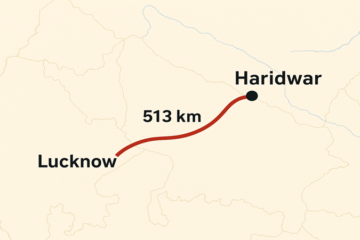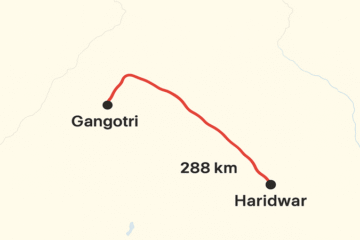
Table of Contents
Traveling is one of life’s greatest pleasures and a chance to explore new places, meet interesting people, and disconnect from the everyday grind. It’s more and more difficult to truly “get away.” Our phones are helpful companions and potential distractions, capable of enriching or diminishing our travel experiences depending on how we use them. From navigating foreign streets to capturing once-in-a-lifetime moments, mobile devices can be invaluable tools, but excessive use can pull you away from the present moment or even create safety risks. Understanding the right balance is key. Below, we’ll explore the important do’s and don’ts of phone use during travel, helping you stay connected responsibly while making the most of your adventures.
Use Your Phone as a Travel Tool
Your smartphone can be your best travel companion when used wisely. From navigation and translation apps to digital boarding passes and local guides, it simplifies every stage of your journey. Before you leave, download critical apps and offline maps so you can access them even without an internet connection. Learning how to stay connected while abroad, whether through a local SIM card, eSIM, or Wi-Fi, ensures that you can reach loved ones or access important updates without issues. Beyond convenience, your phone keeps you safe by storing emergency contacts, itineraries, and real-time alerts, helping you travel smarter and with greater peace of mind.
Don’t Ignore Data and Roaming Costs
International roaming can be a financial trap for travelers who don’t plan. Using mobile data abroad without understanding your carrier’s policies can lead to shockingly high bills. To avoid this, always check your phone plan before traveling. Many carriers offer temporary international plans that provide limited data at reasonable rates. Consider buying a local SIM card or using an eSIM for affordable access. Another option is relying on Wi-Fi whenever possible, though public networks come with security concerns. Turning off automatic updates and background app refreshes can further minimize data usage. Awareness of your data habits ensures your phone remains a travel aid, not a financial burden.
Take Advantage of Travel Apps
There’s a growing list of travel-related apps designed to make life on the road easier. From itinerary planners like TripIt to budgeting tools and language learning platforms, your phone can become your go-to travel assistant. Currency converters help you understand local prices, while apps like Google Translate bridge communication gaps in foreign countries. Ride-hailing and local transportation apps simplify getting around unfamiliar cities. Before you leave, research and download a few crucial apps that fit your travel needs. The key is preparation. The right apps can turn potential travel stress into smooth efficiency. Always download them before you depart to avoid expensive roaming data charges.
Don’t Overshare on Social Media
While it’s tempting to share every picture-perfect sunset and every dish you eat abroad, constant posting can take away from the spontaneity and privacy of your trip. Oversharing your location in real time can pose safety risks, signaling to potential thieves that you’re far from home. Posting later is a smarter approach that allows you to stay secure while still letting your friends and followers enjoy your adventures. Spending too much time crafting posts, checking likes, or scrolling through your feed can distract you from the experience. Remember, your best travel memories live in your mind first, and your feed second.
Capture Moments Thoughtfully
Photography is one of the best ways to preserve your travel memories, and smartphones have made it easier than ever. Thoughtful photography means capturing moments without letting the camera take over. Take your photos, but don’t forget to look up and experience the scene firsthand. Some of the most meaningful travel memories are felt rather than photographed. If you’re traveling with others, be mindful not to make them wait endlessly for the perfect shot. And when visiting cultural or religious sites, respect local customs, as some places may prohibit photography altogether. Balance documentation with presence to ensure your travel memories are vivid and respectful.
Don’t Neglect Security and Privacy
Traveling makes you more vulnerable to cyber threats when connecting to public Wi-Fi networks in airports, hotels, or cafés. To protect your personal data, avoid logging into banking or sensitive accounts on unsecured connections. Using a VPN is an excellent precaution for encrypting your internet activity. Always enable phone security features like fingerprint locks, strong passwords, and “Find My Phone” tracking. Keep important documents backed up securely in the cloud or an encrypted folder. Be cautious when downloading unfamiliar apps abroad, as some may contain malware. Digital safety is just as important as physical safety when traveling, and vigilance can prevent unnecessary headaches.
Use Your Phone for Connection, Not Distraction
Phones are powerful tools for staying in touch with loved ones while away, offering comfort and connection during long trips. Moderation is key. Instead of constantly checking in, set aside specific times to call or message home. This helps you stay engaged with your surroundings while maintaining relationships. Disconnecting from your phone for portions of the day allows you to connect more deeply with the people and places around you. Many travelers find that putting their phone on “Do Not Disturb” for certain hours helps them stay grounded in the present. After all, travel is about immersion, and your phone should enhance that, not interrupt it.
Don’t Forget Local Etiquette and Awareness
Cultural norms around phone use vary around the world. In some countries, using your phone loudly in public or taking photos without permission can be seen as disrespectful. Always observe how locals behave and adapt accordingly. When using navigation or translation apps in public, try to stay aware of your surroundings. Walking distractedly through unfamiliar areas can make you an easy target for pickpockets or accidents. In social settings, keep your phone away and focus on face-to-face interactions. By being mindful of local customs and safety, you’ll blend in better and show respect to the communities you’re visiting.

Phones can be your greatest travel ally and your biggest distraction; it all depends on how you use them. When balanced thoughtfully, smartphones enhance safety, convenience, and connectivity, allowing you to explore the world with confidence. The key lies in using your device as a support system rather than a barrier between you and the experience. By following these simple dos and don’ts, you can stay connected, travel smart, and fully enjoy every moment of your journey, online and off.


